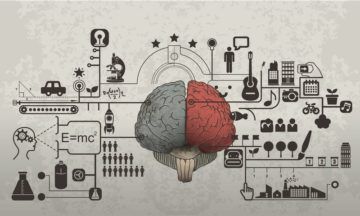Chantel Prat in Nautilus:
 I remember all too well that day early in the pandemic when we first received the “stay at home” order. My attitude quickly shifted from feeling like I got a “snow day” to feeling like a bird in a cage. Being a person who is both extraverted by nature and not one who enjoys being told what to do, the transition was pretty rough.
I remember all too well that day early in the pandemic when we first received the “stay at home” order. My attitude quickly shifted from feeling like I got a “snow day” to feeling like a bird in a cage. Being a person who is both extraverted by nature and not one who enjoys being told what to do, the transition was pretty rough.
But you know what?
I got used to it. Though the pandemic undoubtedly affected some of your lives more than others, I know it touched every one of us in ways we will never forget. And now, after two years and counting, I am positive that every person reading this is fundamentally different from when the pandemic started. Because that’s how our brains work. They are molded by our experiences so that we can fit into all kinds of different situations—even the decidedly suboptimal ones. This is actually one of the most human things about all of our brains. In fact, according to some contemporary views of human evolution, our ancestors underwent a “cognitive revolution” precisely because they were forced to adapt. Based on evidence suggesting that the size of our ancestors’ brains increased following periods of extreme weather instability, one popular explanation for our remarkable flexibility is that the hominids who were not able to adapt to environmental changes didn’t survive. In other words, the brains of modern humans were selected for their ability to learn and adapt to changing environments.
More here.
